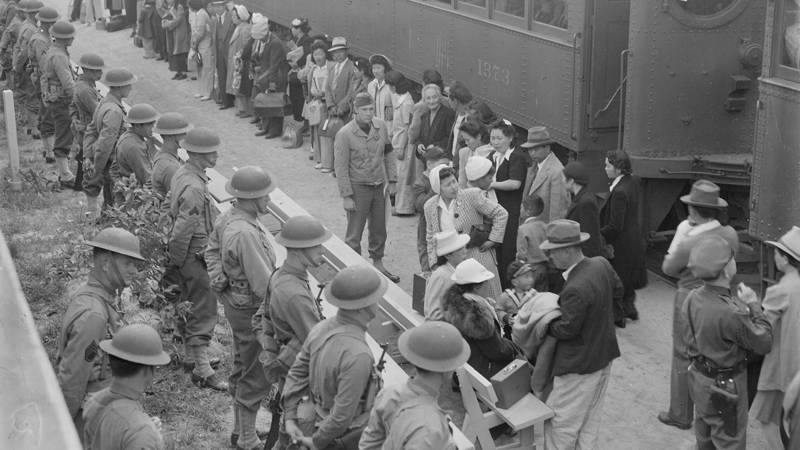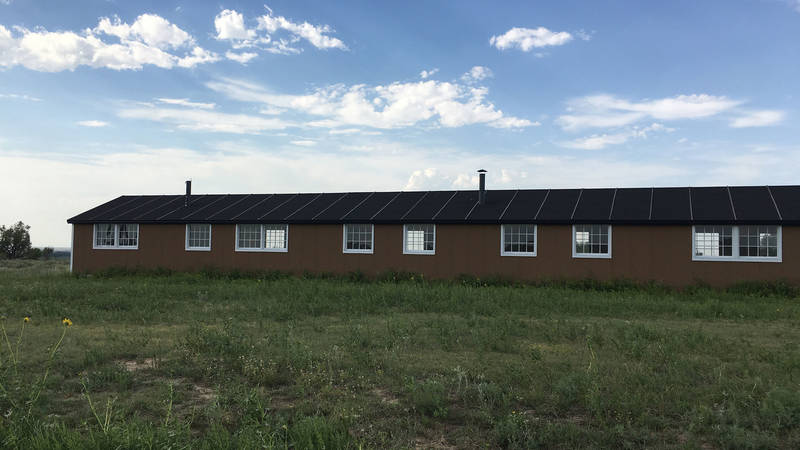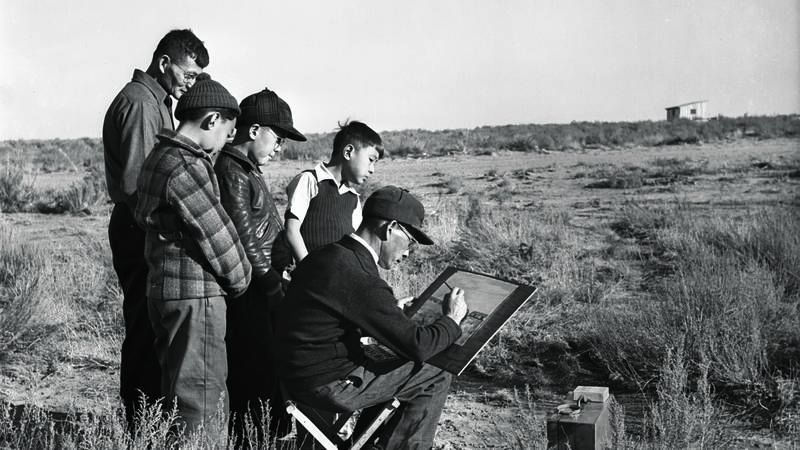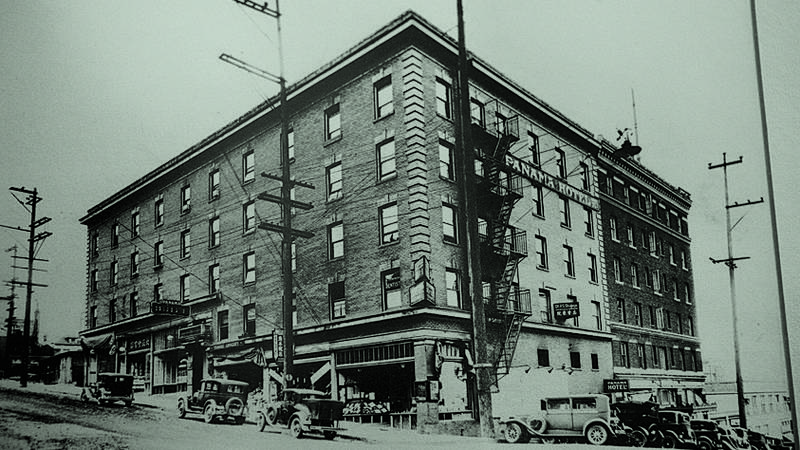

The Day of Remembrance Marks Need for Continued Japanese American Incarceration Site Protections
Conservation group advocates for further protections to honor survivors and descendants’ experiences.
See more ›NPCA works alongside Japanese American survivors and descendants of the World War II incarceration sites. We work to get those incarceration sites that are not currently within the National Park System, included with a national park designation. By doing so, we help create a fuller representation of all communities’ experiences in U.S. history.
On February 19, 1942, Pres. Franklin D. Roosevelt signed Executive Order 9066, and put into law one of the most shameful government-funded efforts of our time. The order called for the removal of Japanese Americans, most U.S. citizens, from their homes and into incarceration sites on the West Coast and in the Southwest. Held without trial or hearing, over 120,000 Japanese Americans were imprisoned on U.S. soil during World War II.
February 19th is observed annually as The Day of Remembrance.
I am 82 now. Most children of the camps across the United States are in our 80s and 90s, our parents long gone. I, like many other incarceration survivors, work hard to preserve the land and what is left of the barracks, guard watchtowers and fencing. After Amache was closed in 1945, the land was abandoned and left for the prairie to reclaim.
Preserving the History of Amache

Victory: President Biden, Parks Leaders Welcome Amache National Historic Site
“By preserving Amache, we can ensure that as a country we confront our mistakes, honor the stories of those who were unjustly imprisoned, and protect the site for future generations"…
See more ›The Granada Relocation Center in Colorado, better known as Amache, was a prison for more than 7,500 Americans of Japanese descent during World War II. Our parks have the power to fill in the gaps of our history that are deliberately or carelessly forgotten. What happened to the people incarcerated at Amache is an American story that must not be forgotten. It’s a story of failure by the U.S. government to protect its own citizens. And it’s a story that remains relevant to how America treats its Asian American and Pacific Islander communities.
NPCA helped advocate for a national park site preserving the story of Amache, where thousands of people of Japanese descent were unconstitutionally incarcerated.
Amache National Historic Site Act (H.R. 2497) passed in the Senate and House unanimously and was signed into law by President Biden on March 18, 2022.
Learn More about These Japanese American Incarceration Sites
Make a tax-deductible gift today to provide a brighter future for our national parks and the millions of Americans who enjoy them.
Donate Now



